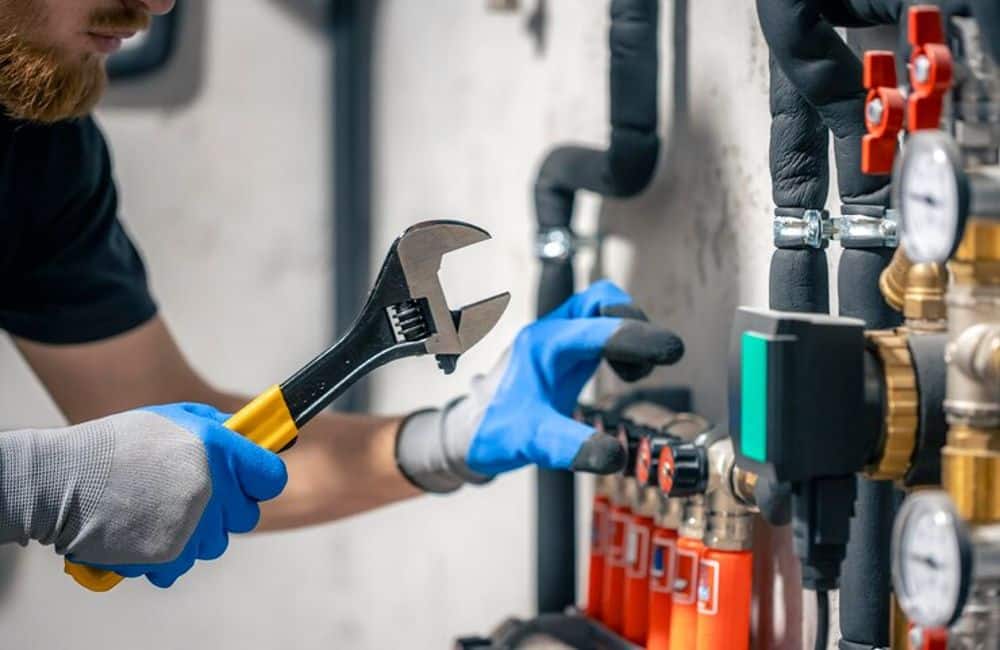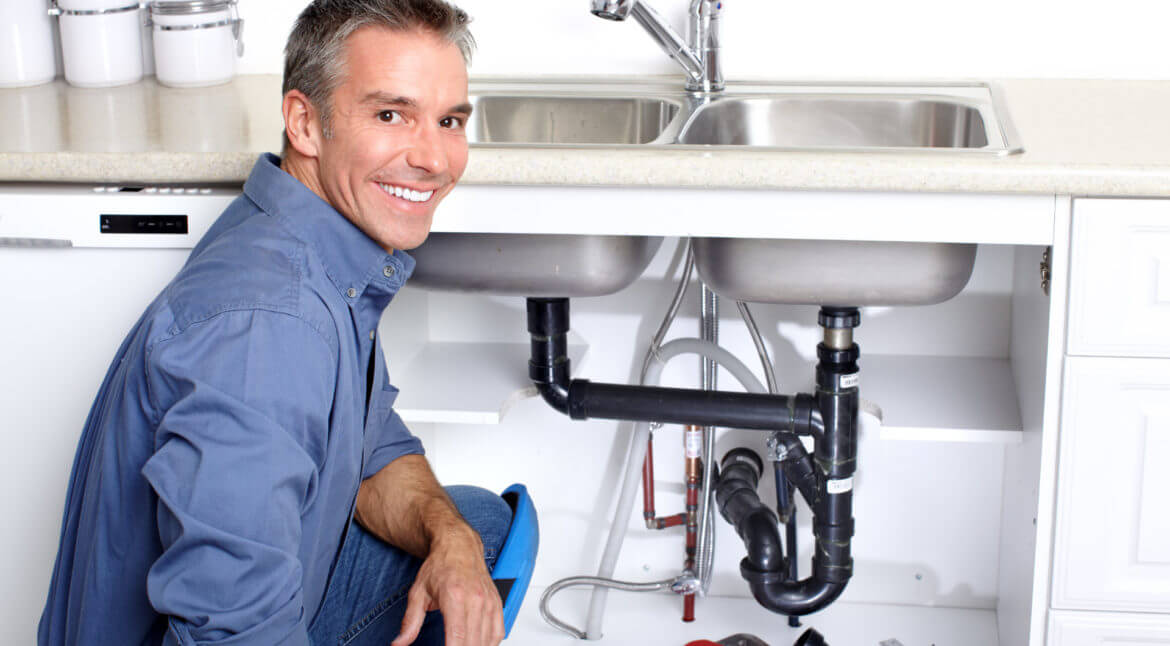Crucial Emergency Plumbing Tips to Apply Until Help Arrives
Crucial Emergency Plumbing Tips to Apply Until Help Arrives
Blog Article
The article below relating to What to Do While Waiting for an Emergency Plumber is relatively remarkable. You should read it.

Pipes emergency situations can strike at any time, causing stress and potential damage to your home. Whether it's a burst pipe, a clogged drain, or a leaky faucet, knowing how to handle the circumstance until a professional plumbing arrives can conserve you from more difficulties. This post supplies necessary emergency situation pipes ideas to assist you alleviate damage and restore control throughout a pipes situation.
Shut off the Water System
The primary step in any pipes emergency situation is to turn off the supply of water. For localized issues, such as a dripping tap or bathroom, shut off the valve near the component. When it comes to a significant leak or ruptured pipeline, find your home's main water shut-off valve and transform it off promptly. Knowing the area of these valves ahead of time can conserve important time throughout an emergency situation.
Address Little Leaks with Short-lived Solutions
Little leaks can promptly end up being significant troubles if left untreated. Use these momentary repairs until specialist assistance arrives:
While these fixes aren't irreversible, they can assist minimize water loss and damages.
Unclog Drains Securely
A clogged drainpipe can be an aggravating and unpleasant issue. Below's how to tackle it:
If these techniques do not work, prevent making use of excessive pressure, as it might intensify the clog.
Manage Overflowing Toilets
An overflowing commode can cause immediate turmoil. Here's what you ought to do:
Turn off Your Hot Water Heater
In particular emergencies, such as a ruptured pipeline, it's important to shut off your water heater. This avoids getting too hot or damages to the device when water quits flowing. Turn off the power supply to the water heater (electric or gas) and allow it cool down to avoid potential risks.
Briefly Stop a Burst Pipeline
A ruptured pipeline can cause substantial water damages in minutes. To reduce the issue:
Call a professional plumber quickly to resolve the issue permanently.
Handle Frozen Piping Very Carefully
In colder climates, icy pipes are a common emergency situation. If you presume a frozen pipe:
Avoid Further Damages
Taking fast activity to decrease damages can save you time and money in the long run. Below's how:
. Have an Emergency Situation Pipes Set
Prepare a basic pipes emergency package to handle small problems effectively. Your set needs to include:
Having these tools accessible can make a significant difference in your capacity to manage emergencies.
Know When to Call an Expert.
While quick fixes can aid temporarily, specific pipes issues need prompt professional interest. Call a plumbing professional if:.
Quickly calling a professional guarantees the concern is dealt with properly and protects against more difficulties.
Conclusion.
Pipes emergency situations can be overwhelming, however with the ideal expertise and tools, you can handle the scenario effectively until help shows up. By shutting off the water, resolving small leaks, and utilizing short-lived fixes, you can reduce damage and keep your home safe. Bear in mind, these ideas are momentary options; constantly get in touch with a qualified plumbing technician to take care of the origin of the trouble. Prep work and fast reasoning are your finest allies in any type of plumbing emergency.
8 Helpful Tips for Managing Plumbing Emergencies at Home
If your plumbing system hasn’t failed once, wait for it because almost everyone has a story to tell. Sometimes, it could be simple emergencies such as a leaking pipe, a blocked cistern, or even a big burst pipe. In situations like this, you need to have some handy tips to save you some money and from possible damages.
Take care of minor issues early.
Sometimes, you could have avoided an emergency by taking proactive measures while it was still early. Some major plumbing emergencies can be a result of an ignored minor issue. We recommend that you have items like plumbing tapes and other related items. A plumbing tape can allow you to manage minor leaks before the plumber arrives.
Cut off the water supply.
This tip is essential in almost any type of leakage problem. For problems like minor leakages in the toilet or kitchen, turn off the supply that takes water to the affected pipes. If the leakage is a major pipe, you must shut off the supply valve to the entire building. This will help you avoid flooding your home and neighbors if you share a flat.
Know your plumbing system
Folks typically move into a new apartment without understanding the water supply around the building. This can prove disastrous if a water emergency arises and the plumber is far away. The previous tip will prove useless if you don’t practice this one. More importantly, know where your water shut-off valve is located – you’ll need that knowledge to prevent potential home floods.
Have some common handy tools
There are lots of plumbing emergencies that you can handle without hiring a plumber. That’s why you must keep some tools available always. Some tools that you can use to fix simple plumbing emergencies easily include plumbing tapes, screwdrivers, thread seal tapes, plungers, pliers, tape measures, and rubber gloves.
Insulate your pipes from cold
You’ll save yourself from many plumbing expenses if you protect your water pipes from the cold. This is because of the harmful effects that cold weather can have on your pipes. During winter, your pipes can burst from being overly expected to freezing temperatures. So, make sure insulators are there to keep the pipes working correctly.
Avoid practices that will clog your toilet.
Many people indulge in practices that can damage the plumbing system of the entire building. One of these is when they use their toilet to dispose-off garbage. They flush all kinds of things, such as paper towels, bandages, hairs, female sanitary products, etc., down the toilet. This will block your toilet in the long run, incurring unnecessary expenditures. Dump such waste in the trash instead.
Check your dials regularly.
Sometimes, there could be leakages in your home without noticing them in time. So, constantly monitor your water meter dial. If the dial is reading when there is nobody using water, this is an indicator that there is leaking. Check for leaks immediately. Call a plumber as soon as possible if you can’t find any.
https://www.constructionplacements.com/8-helpful-tips-for-managing-plumbing-emergencies-at-home/

I am just very occupied with Expert Tips for Emergency Plumbing Repairs and I'm hoping you enjoyed our page. Sharing is caring. Helping others is fun. Many thanks for your time invested reading it.
Browse Website Report this page